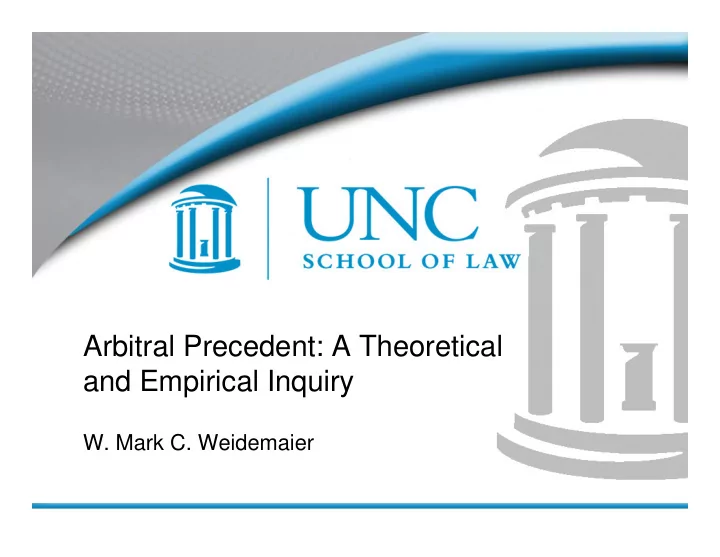

Arbitral Precedent: A Theoretical and Empirical Inquiry W. Mark C. Weidemaier
Background • Contrasting (stylized) views – Ad hoc, “lawless” – Systemic, “law-making” • Core question (Carbonneau): Do “modern-day arbitrators fashion a commercial, antitrust, employment, maritime, securities, and contract law?”
Some characteristics of precedential systems Structural: e.g., Reasoned, accessible awards Benefits to system Arbitration Award Award users users Norms concerning arbitrator’s role (maker vs. applier of law)
Reasoned Awards … Causes and Benefits Information - parties Contract - third-parties Legitimacy Legitimacy - parties Provider Reasoned - courts Rule Awards - other regulators - private enforcers Public Status/Expertise Mandate - arbitrators - lawyers
Some possible hypotheses… 1. Arbitration as uniformly “ad hoc” or “lawless”? 2. Reasoned, accessible awards sufficient to generate precedent? 3. Use of arbitral precedent: - Labor > Class Arbitration > Employment > Securities? 4. Impact of claim type? - e.g., increased reliance on state-supplied law in, say, increased reliance on state-supplied law in, say, discrimination cases? 5. Impact of repeat-play arbitrator? - arbitral precedent reflects arbitrator’s knowledge of system? (RP use more) - use of arbitral precedent signifies status? (RP use more?) - use of precedent (all forms) signals that arbitrator is within the mainstream? (RP use less)
Dataset • Sampling, Coding & Reliability • Publication bias?
Preliminary data…
Preliminary data…
Preliminary data… discrimination claims
Preliminary data… Role of Repeat-Play Arbitrators Whether award cites to any form of precedent
Recommend
More recommend